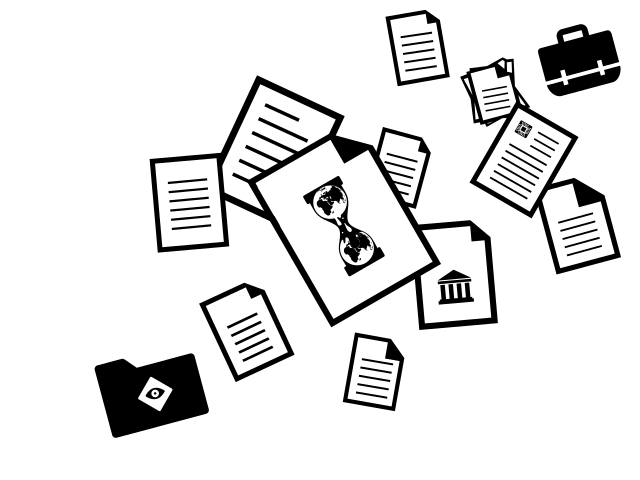
As part of Project Area 4: Enduring Freedom of Information [1], the Wau Holland Foundation has previously called attention to the German government’s attempts to censor FragDenStaat (“Ask the State”), a platform for freedom of information requests to both German and EU public authorities, as well as campaigns, investigative journalism and strategic lawsuits. In 2014, the German ministry of internal affairs (Bundesministerium des Innern, or BMI) did so on the basis of a misused copyright claim [2] on documents that FragDenStaat had legitimately obtained through the Freedom of Information Act (Informationsfreiheitsgesetz, or IFG); the state ultimately lost that fight [3].
This time, editor-in-chief Arne Semsrott was threatened with ‘a prison sentence of up to one year or a fine’ [4] for publishing court orders for searches of members of the Letzte Generation (“Last Generation), a climate change resistance / activism group [5], in August 2023 [6]. Semsrott knew that publishing these documents about an ongoing case was a violation of Section 353d No. 3 of the Criminal Code (Strafgesetzbuch, or StGB), prohibiting communications about ongoing court proceedings [7]. However, he intends to argue that this broad prohibition is not only unconstitutional in Germany, but a violation of the European Convention on Human Rights (ECHR) [8], which holds that such information may only be censored if it can be shown that their publication would ‘interfere with an ongoing criminal investigation or violate the presumption of innocence’ [9], balanced against public interest. Semsrott also took care to redact personal data in the documents.
On October 18th, the Berlin regional court (Berliner Landgericht) ruled that the section was not unconstitutional; Semsrott was given a warning that he would be subject to a ‘€1,000 fine if he commits another offense within his one-year probation period’ [10]. He will appeal the decision with his defense attorney, Dr. Lukas Theune [11], and support [12] from the Society for Civil Rights (Gesellschaft für Freiheitsrechte e.V., or GFF), a Berlin-based human rights & civil society organisation [13]. As a witness remarked:
‘The public is an essential component of democracy and has an important oversight function, especially for the judiciary. Therefore, court proceedings, including ongoing ones, must be as transparent as possible. It is important that journalists are allowed to quote directly and not just paraphrase them.’
[1] https://wauland.de/en/projects/enduring-freedom-of-information/\ [2] https://wauland.de/en/news/2014/01/outrageous-attempt-to-censor-fragdenstaat-de/\ [3] https://fragdenstaat.de/aktionen/zensurheberrecht-2014/#pressemitteilung\ [4] https://fragdenstaat.de/artikel/klagen/2024/10/fragdenstaat-chefredakteur-steht-am-16-oktober-vor-gericht/\ [5] https://letztegeneration.org/\ [6] https://fragdenstaat.org/blog/2023/08/22/hier-sind-die-gerichtsbeschlusse-zur-letzten-generation/\ [7] https://www.gesetze-im-internet.de/stgb/__353d.html\ [8] https://www.coe.int/en/web/conventions/full-list?module=treaty-detail&treatynum=005\ [9] https://www.juristenverein-luzern.ch/images/pdf/EGMRJustiz_Medien_2011-2103.pdf\ [10] https://fragdenstaat.de/artikel/klagen/2024/10/arne-semsrott-urteil-353d/\ [11] https://akm-berlin.de/RA-Theune.php\ [12] https://freiheitsrechte.org/themen/demokratie/strafnorm_353d_pressefreiheit\ [13] https://freiheitsrechte.org/en/ueber-die-gff/werwirsind-2
